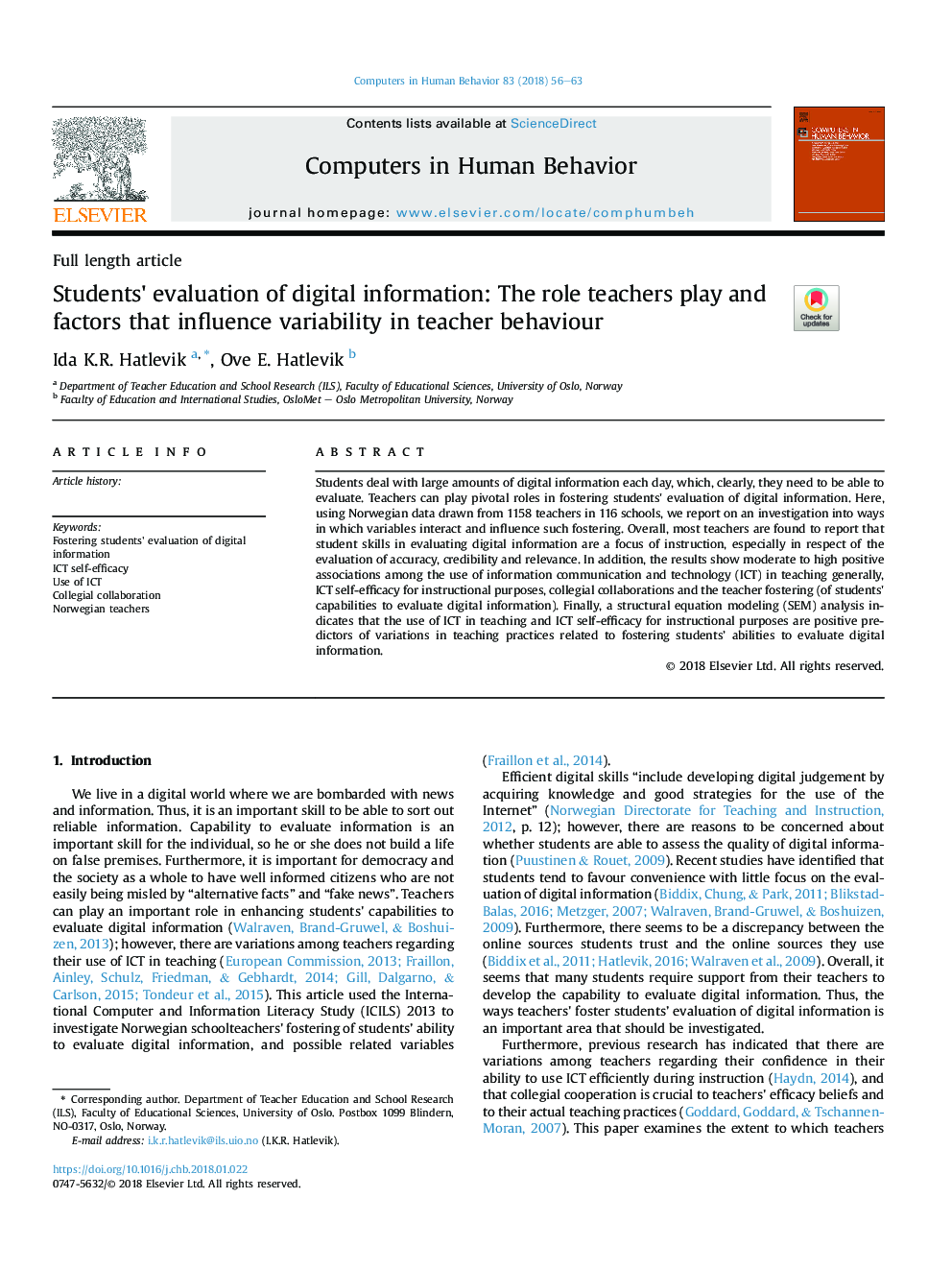| Article ID | Journal | Published Year | Pages | File Type |
|---|---|---|---|---|
| 6836056 | Computers in Human Behavior | 2018 | 8 Pages |
Abstract
Students deal with large amounts of digital information each day, which, clearly, they need to be able to evaluate. Teachers can play pivotal roles in fostering students' evaluation of digital information. Here, using Norwegian data drawn from 1158 teachers in 116 schools, we report on an investigation into ways in which variables interact and influence such fostering. Overall, most teachers are found to report that student skills in evaluating digital information are a focus of instruction, especially in respect of the evaluation of accuracy, credibility and relevance. In addition, the results show moderate to high positive associations among the use of information communication and technology (ICT) in teaching generally, ICT self-efficacy for instructional purposes, collegial collaborations and the teacher fostering (of students' capabilities to evaluate digital information). Finally, a structural equation modeling (SEM) analysis indicates that the use of ICT in teaching and ICT self-efficacy for instructional purposes are positive predictors of variations in teaching practices related to fostering students' abilities to evaluate digital information.
Keywords
Related Topics
Physical Sciences and Engineering
Computer Science
Computer Science Applications
Authors
Ida K.R. Hatlevik, Ove E. Hatlevik,
